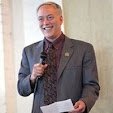Newspaper Endorses Covey in County Commission race.
This is the endorsement made in the 25th District Oakland County Commission race by the South Oakland Eccentric Newspaper, the Democratic primary being Tuesday August 3rd. I certainly am appreciative and humbled by such kind words.
Voters in the 23rd and 25th County Commission districts have an opportunity Aug. 3 to select two Democratic candidates with fresh ideas as current county commissioners in those districts make a bid for higher office in the primary election.
The two we are recommending — Tim Wirkus in the 23rd District and Craig Covey in the 25th District — bring a mix of ideas and skills that can only be healthy. Great minds may think alike, but that just means they think the same things. South Oakland County residents will be well served by both men.
Covey, who currently is mayor in the city of Ferndale, is likely to soon assume a leadership role on the commission. He knows how to network with divergent groups and can be expected to reach across the aisle to Republicans.
Covey also knows the importance of bridging the gap between the state and the county, and between the county and local governments. He recognizes the importance of consolidating operations where possible to save precious dollars in this economy.
Moreover, with a calm exterior, Covey gets out into the Ferndale community regularly and can be expected to represent the entire district, which encompasses Hazel Park as well as Ferndale. He is in tune with the needs of the district in the areas of transportation and support for small businesses.
With a creative bent, Covey also promises to promote Oakland County, which is an important part of bringing new businesses to the area.
Wirkus is the exact opposite of a career politician, having never served as an elected official. But public service clearly is his middle name. Wirkus is an independent thinker who has studied the issues and the operations of the commission.
A little concern about a potentially combative stance is overridden by the knowledge that he has worked with many groups on a variety of issues. He has served on boards ranging from emergency management to youth services in Southfield, where he is a resident.
Wirkus also is a staunch advocate for veterans and the services they need, which is really important as the number of veterans increases rapidly due to the wars the U.S. has been involved in.
That is not his only concern. Like Covey, Wirkus understands the need for mass transit and for linking transit systems. Covey understands the importance that will play in bringing workers to jobs in the county.
Wirkus, if elected, will face in the November general election the lone Republican to file, Richard Parisi. Covey, if elected, will face the lone Republican to file in his district, Charles Ehrenreich.
Their breadth of experience and ideas make Tim Wirkus in the 23rd District and Craig Covey in the 25th District the best choices for voters.
In your voice|Read reactions to this story Newest first Oldest first

